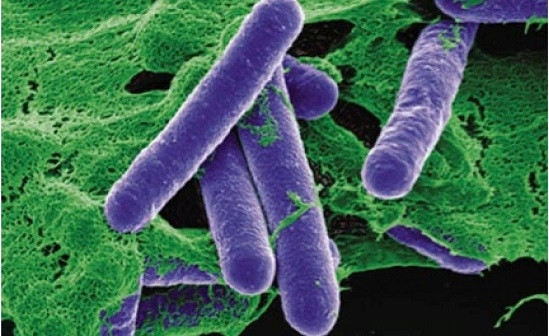The incubation period for poisoning caused by Clostridium botulinum lasts from 8 to 10 hours, but in some cases it is only 4 hours.

Clostridium Botulinum
According to the Food Safety Department (Ministry of Health), in cases of poisoning caused by Clostridium Botulinum, the toxin is not destroyed by gastric acid, the toxin is quickly absorbed into the blood and dispersed throughout the body into the cells of different tissues. First, the toxin enters the tissues of the central nervous system, binds to nerve endings, and then causes clinical manifestations arising from the medulla oblongata, vomiting, and nausea. The toxin also quickly absorbs into the blood through the mucous membrane of the respiratory tract.
The incubation period for poisoning caused by Clostridium botulinum is 8 - 10 hours, but in some cases it is only 4 hours.
Because this bacterial toxin has an affinity for the nervous system, poisoned patients mainly show peripheral neurological symptoms such as:
- Vomiting, nausea, headache, dizziness, fatigue, weakness, dry skin.
- Abdominal pain, bloating, constipation, often with little diarrhea.
- No fever or mild fever, no disturbance of consciousness.
Then, the poisoned person will show typical neurological symptoms such as:
- Eye muscle paralysis, dilated pupils, loss of light reflex, heart muscle paralysis, accommodation paralysis (farsightedness), eye muscle paralysis (strabismus), double vision.
- Palatal paralysis, throat spasm, choking, nasal obstruction, jaw muscle relaxation, difficulty chewing and swallowing.
- Laryngeal muscle paralysis, hoarse voice, nasal voice, soft voice, inability to speak clearly. Symptoms of paralysis are often characterized by bilateral paralysis symmetrically.
- Digestive symptoms continue in the following direction: Constipation, decreased digestive secretions, dry mouth, dry throat.
Symptoms of poisoning caused by Clostridium Botulinum can last from 4 to 8 days. In severe cases, the patient's central nervous system and respiratory system may be paralyzed (manifested as difficulty breathing, rapid breathing, shallow breathing) and death may occur due to suffocation.
Poisoning by Clostridium botulinum is rare; has a poor prognosis, high mortality rate. Patients recover relatively slowly, often leaving relatively long-term sequelae. If left untreated, people poisoned by this toxin can die after 3 - 4 days.
Accordingly, currently, with active and rapid treatment methods, the mortality rate has decreased to about 10%.
To prevent botulinum poisoning, the Food Safety Department (Ministry of Health) recommends:
- In production and processing, facilities must use ingredients that ensure food safety and comply with hygiene regulations in the production process. In the production of canned foods, strict sterilization must be followed.
- People should only use food products and food ingredients with clear origin and source. Absolutely do not use canned products that have expired, are swollen, flattened, deformed, rusted, are no longer intact, or have unusual flavors or colors.
- Eat cooked food and drink boiled water; prioritize eating newly prepared and cooked foods.
- Do not pack food tightly and leave it for a long time without freezing. For fermented foods, pack or cover them tightly in the traditional way (such as pickles, bamboo shoots, pickled eggplants...) to ensure they are sour and salty; when the food is no longer sour, it should not be eaten.
- When symptoms of Botulinum poisoning appear, people need to go to the nearest medical facility for timely diagnosis and treatment.
According to Tin Tuc Newspaper